Nourish
HOW MUCH SUNSCREEN YOU REALLY NEED—AND OTHER SURPRISING SUN-PROTECTION TIPS
We all know sun protection is important to keep our skin healthy and cancer-free. Yet when it comes to figuring out how we should go about protecting our skin, a lot of questions come up. Like what SPF is best? Do the sprays really work? And is there anything else we should be doing to protect our skin? For answers, we connected with Dr. Keira L. Barr, a dermatologist with more than 20 years experience in her field. She shares her expertise—along with her personal experience with a melanoma diagnosis—inside her new book The Skin Whisperer: A Dermatologist Reveals How to Look Younger, Radiate Beauty and Create the Life You Crave.
Read on for Dr. Barr’s advice on sunscreen best practices, why skincare goes way beyond just using sunscreen, and what else we can do to prevent skin cancer.
B3 MAGAZINE: You have a chapter in your book called Why SPF Isn’t Your Only BFF. What misconceptions were you trying to dispel?
DR. BARR: Most people think if they put on sunscreen and go outside, they’re good to go. I truly believe that sunscreen is an important part of your daily routine. But sunscreen should be your last line of defense, not your first—and certainly not your only.
You also need to have a strong foundation of health. Nourishing your body on all levels including nutrition, sleep, movement and mindset will help you thrive when confronted with stress. Whether the source of stress is emotional, physical or environmental, as is the case with sun exposure, stress suppresses your immune system making you vulnerable to adverse effects including sunburns and skin cancer. By nourishing your mind, body and soul with a healthy diet and lifestyle you become more resilient.
What’s more is that sunscreen can only do so much to protect you. No sunscreen can block all of the sun’s rays, plus most people are not even using enough to get the protection they need. They are only using 25 to 50 percent of the recommended amount and aren’t reapplying their sunscreen. You need to reapply your sunscreen at least every two hours. That’s why you need other strategies.
B3 MAGAZINE: What other things should we do each day to prevent skin cancer?
DR. BARR: BARR: When heading outdoors, sunscreen should absolutely be part of your daily routine. You should have it right next to your toothbrush and make it as much a part of your morning routine as brushing your teeth. That said, there are other lines of defense you should bring into the mix.
1. Cover yourself up. Protecting your eyes with sunglasses is important because both melanoma and non-melanoma skin cancer can affect your eyes. Creating your own shade by wearing a hat with a three-inch brim, and wearing clothing to cover up will help protect your skin. The Skin Cancer Foundation ranks clothing as your number one line of defense. A typical cotton shirt only offers the equivalent of an SPF 5 or 10, but there is clothing that offers higher protection upwards of the equivalent of SPF 50. The bottom line is that when you go outside, you should accessorize. Have fun with it! Think of it as having a prescription to go on a shopping spree for some accessories like a sun hat, sunglasses, and [sun-protective] clothing.
2. Eat for your health. To build on your foundation of health every day, eating a wide assortment of colorful fruits and vegetables which are rich in antioxidants and polyphenols is important and will help combat the oxidative stress induced by sun exposure. Adding in healthy fats in the form of omega-3 fatty acids from nuts, fish, and seeds will help reduce inflammation. Staying well hydrated, minimizing added sugars and processed foods will also reduce your inflammatory burden and stress on your system. Also, get your vitamin D levels checked. Most people have low levels based on lifestyle and geography which makes generating enough vitamin D a challenge. But don’t guess, get tested so your doctor can recommend the appropriate supplementation.
3. Get your beauty sleep. Melatonin is one of the most potent antioxidants our body produces, and we produce it when we sleep. Melatonin plays an important role in numerous bodily functions—in fact, it’s so powerful that recent research highlights the use of melatonin to both prevent and manage skin cancer. Although you can take it as a supplement, the best way to generate it is to get quality shut-eye on a consistent basis.
4. Move your body. Exercise is good for body and your soul, but do it in a way that feels good for you. Barre is a great exercise because it really tones and tightens and doesn’t put a significant amount of stress on the body.
5. Reduce stress. We can’t get rid of it, but we can reframe it. Your mindset can have a significant impact on your body’s ability to deal with the impact of the sun, its damage, and its ability to repair. Take time for yourself. Remember self-care isn’t selfish, it’s healthy.
B3 MAGAZINE: What are the key ingredients we should look for in a sunscreen?
DR. BARR: Your sunscreen needs to say “broad spectrum” on the label. Nowadays, this is commonplace and means it covers UVA and UVB rays, which are the rays to which we are most commonly exposed. The American Academy of Dermatology recommends using an SPF of 30 or above. Personally, I recommend using the physical blockers like zinc oxide and titanium dioxide because they offer great protection from the sun. But, more importantly, many of us have sensitive skin and those two ingredients are the least irritating on our skin. The physical blockers can be used on kids as well as adults.
B3 MAGAZINE: How much sunscreen should we wear, and how often do we need to reapply it?
DR. BARR: When you are at the beach or the pool with most of your body exposed, the average-size adult needs an ounce, which is the equivalent of a shot glass or 2 tablespoons, of sunscreen for your body and an additional nickel size dollop for your face. You want to be sure you get the tops of your ears, the tops of your feet and, for men, the top of the head if you have a bald spot. Don’t forget to reapply the sunscreen about every two hours or sooner especially after swimming or if you’ve been sweating.
To give you an example, this means that when a family of four goes to the pool, that average-size bottle of sunscreen they bring with them (which is typically 4 ounces) should be gone after they all apply it once. Most people aren’t using that much. In fact, most people will say they still have a tube of sunscreen from last summer packed in their bag. (Speaking of which, check the expiration date on your sunscreen, and toss it if it’s expired.)
B3 MAGAZINE: What form of sunscreen is best, a lotion, cream or spray?
DR. BARR: The bottom line is that the best sunscreen is the one you are going to use. So find what works for you, and get in the habit of using it. But know that, on the effectiveness scale, creams and lotions are better than spray because when people spray on their sunscreen, a lot of it gets into the air and then you still have to rub it in for it to be effective. So spray can be convenient to use on a wiggly kid or for hard-to-reach places, but I usually recommend using lotions or creams.
B3 MAGAZINE: Is the sunscreen that’s included in our face lotion or tinted moisturizer enough to protect us?
DR. BARR: If you are just running errands or working in the office, a tinted moisturizer that has at least an SPF 30 should be enough. That said, before you head outdoors for any extended period of time, you should reapply. What’s important to keep in mind is that if you wear a tinted moisturizer that’s an SPF 30, and use makeup that has an SPF 20, it doesn’t add up to SPF 50. The SPF factor is not additive. Remember, most of us are not putting on the recommended amount to get the full SPF on the label, so err on the side of caution—you can’t use too much.
B3 MAGAZINE: When we wear waterproof sunscreen, do we need to re-apply after a swim?
DR. BARR: The recommendation is to re-apply after swimming or excessive sweating. Water-resistant sunscreen means it’s effective for up to 40 to 80 minutes, but if you are swimming and toweling off, a lot of sunscreen may come off, so it’s important to re-apply it after swimming or physical activity.
B3 MAGAZINE: Do kids and adults need different types of sunscreen or applications?
DR. BARR: Kids are smaller, so they likely won’t need a full ounce of sunscreen to protect their skin. Apply enough to ensure their full body is covered from head to toe. As for the type of sunscreen they need, I recommend the physical blockers with zinc oxide and/or titanium dioxide as the best for kids because these ingredients are the least irritating and the best tolerated. The labeling of zinc-based sunscreen for “baby” or “kids” is more of a marketing ploy, the ingredients are the same as the “adult” version. So save your pennies: Your family needs just one product when you use the zinc-based sunscreens.
B3 MAGAZINE: Do all types of skin need sunscreen, or do only fair-skinned individuals require it?
DR. BARR: The myth is that individuals with dark skin don’t need sunscreen, but the truth is everyone is susceptible to the effects of UV radiation. Individuals with darker skin types may be less likely to get sunburned, but they need to protect their skin because the sun still penetrates their skin, causing damage.
B3 MAGAZINE: Many people have heard that using sunscreen causes skin cancer. Is there truth to that?
DR. BARR: They don’t need to worry. Research studies have shown that sunscreen reduces the incidence of skin cancer. The risk-benefit ratio favors the use of sunscreen. The rise in skin cancer has more to do with lifestyle choices, geographic factors and the relationship to vitamin D than it does with the use of sunscreen.
B3 MAGAZINE: Can we still enjoy our time outside this summer without worrying about harming our skin?
DR. BARR: Absolutely. The sun is vital. We need it to thrive and elevate our mood. It’s just a matter of being prepared. When you start with a strong foundation of health, everything can be enjoyed. So set yourself up for success before you head outdoors. Make exercise part of routine. Get a good quality sleep. Eat a whole food, nutrient-dense diet. Take time out for yourself to get stress to a place that’s more manageable. Then, when you head outdoors armed with hats, sunglasses, sunscreen, and clothing, you can fully enjoy it.
We all know sun protection is important to keep our skin healthy and cancer-free. Yet when it comes to figuring out how we should go about protecting our skin, a lot of questions come up. Like what SPF is best? Do the sprays really work? And is there anything else we should be doing to protect our skin? For answers, we connected with Dr. Keira L. Barr, a dermatologist with more than 20 years experience in her field. She shares her expertise—along with her personal experience with a melanoma diagnosis—inside her new book The Skin Whisperer: A Dermatologist Reveals How to Look Younger, Radiate Beauty and Create the Life You Crave.
Read on for Dr. Barr’s advice on sunscreen best practices, why skincare goes way beyond just using sunscreen, and what else we can do to prevent skin cancer.
B3 MAGAZINE: You have a chapter in your book called Why SPF Isn’t Your Only BFF. What misconceptions were you trying to dispel?
DR. BARR: Most people think if they put on sunscreen and go outside, they’re good to go. I truly believe that sunscreen is an important part of your daily routine. But sunscreen should be your last line of defense, not your first—and certainly not your only.
You also need to have a strong foundation of health. Nourishing your body on all levels including nutrition, sleep, movement and mindset will help you thrive when confronted with stress. Whether the source of stress is emotional, physical or environmental, as is the case with sun exposure, stress suppresses your immune system making you vulnerable to adverse effects including sunburns and skin cancer. By nourishing your mind, body and soul with a healthy diet and lifestyle you become more resilient.
What’s more is that sunscreen can only do so much to protect you. No sunscreen can block all of the sun’s rays, plus most people are not even using enough to get the protection they need. They are only using 25 to 50 percent of the recommended amount and aren’t reapplying their sunscreen. You need to reapply your sunscreen at least every two hours. That’s why you need other strategies.
B3 MAGAZINE: What other things should we do each day to prevent skin cancer?
DR. BARR: BARR: When heading outdoors, sunscreen should absolutely be part of your daily routine. You should have it right next to your toothbrush and make it as much a part of your morning routine as brushing your teeth. That said, there are other lines of defense you should bring into the mix.
1. Cover yourself up. Protecting your eyes with sunglasses is important because both melanoma and non-melanoma skin cancer can affect your eyes. Creating your own shade by wearing a hat with a three-inch brim, and wearing clothing to cover up will help protect your skin. The Skin Cancer Foundation ranks clothing as your number one line of defense. A typical cotton shirt only offers the equivalent of an SPF 5 or 10, but there is clothing that offers higher protection upwards of the equivalent of SPF 50. The bottom line is that when you go outside, you should accessorize. Have fun with it! Think of it as having a prescription to go on a shopping spree for some accessories like a sun hat, sunglasses, and [sun-protective] clothing.
2. Eat for your health. To build on your foundation of health every day, eating a wide assortment of colorful fruits and vegetables which are rich in antioxidants and polyphenols is important and will help combat the oxidative stress induced by sun exposure. Adding in healthy fats in the form of omega-3 fatty acids from nuts, fish, and seeds will help reduce inflammation. Staying well hydrated, minimizing added sugars and processed foods will also reduce your inflammatory burden and stress on your system. Also, get your vitamin D levels checked. Most people have low levels based on lifestyle and geography which makes generating enough vitamin D a challenge. But don’t guess, get tested so your doctor can recommend the appropriate supplementation.
3. Get your beauty sleep. Melatonin is one of the most potent antioxidants our body produces, and we produce it when we sleep. Melatonin plays an important role in numerous bodily functions—in fact, it’s so powerful that recent research highlights the use of melatonin to both prevent and manage skin cancer. Although you can take it as a supplement, the best way to generate it is to get quality shut-eye on a consistent basis.
4. Move your body. Exercise is good for body and your soul, but do it in a way that feels good for you. Barre is a great exercise because it really tones and tightens and doesn’t put a significant amount of stress on the body.
5. Reduce stress. We can’t get rid of it, but we can reframe it. Your mindset can have a significant impact on your body’s ability to deal with the impact of the sun, its damage, and its ability to repair. Take time for yourself. Remember self-care isn’t selfish, it’s healthy.
B3 MAGAZINE: What are the key ingredients we should look for in a sunscreen?
DR. BARR: Your sunscreen needs to say “broad spectrum” on the label. Nowadays, this is commonplace and means it covers UVA and UVB rays, which are the rays to which we are most commonly exposed. The American Academy of Dermatology recommends using an SPF of 30 or above. Personally, I recommend using the physical blockers like zinc oxide and titanium dioxide because they offer great protection from the sun. But, more importantly, many of us have sensitive skin and those two ingredients are the least irritating on our skin. The physical blockers can be used on kids as well as adults.
B3 MAGAZINE: How much sunscreen should we wear, and how often do we need to reapply it?
DR. BARR: When you are at the beach or the pool with most of your body exposed, the average-size adult needs an ounce, which is the equivalent of a shot glass or 2 tablespoons, of sunscreen for your body and an additional nickel size dollop for your face. You want to be sure you get the tops of your ears, the tops of your feet and, for men, the top of the head if you have a bald spot. Don’t forget to reapply the sunscreen about every two hours or sooner especially after swimming or if you’ve been sweating.
To give you an example, this means that when a family of four goes to the pool, that average-size bottle of sunscreen they bring with them (which is typically 4 ounces) should be gone after they all apply it once. Most people aren’t using that much. In fact, most people will say they still have a tube of sunscreen from last summer packed in their bag. (Speaking of which, check the expiration date on your sunscreen, and toss it if it’s expired.)
B3 MAGAZINE: What form of sunscreen is best, a lotion, cream or spray?
DR. BARR: The bottom line is that the best sunscreen is the one you are going to use. So find what works for you, and get in the habit of using it. But know that, on the effectiveness scale, creams and lotions are better than spray because when people spray on their sunscreen, a lot of it gets into the air and then you still have to rub it in for it to be effective. So spray can be convenient to use on a wiggly kid or for hard-to-reach places, but I usually recommend using lotions or creams.
B3 MAGAZINE: Is the sunscreen that’s included in our face lotion or tinted moisturizer enough to protect us?
DR. BARR: If you are just running errands or working in the office, a tinted moisturizer that has at least an SPF 30 should be enough. That said, before you head outdoors for any extended period of time, you should reapply. What’s important to keep in mind is that if you wear a tinted moisturizer that’s an SPF 30, and use makeup that has an SPF 20, it doesn’t add up to SPF 50. The SPF factor is not additive. Remember, most of us are not putting on the recommended amount to get the full SPF on the label, so err on the side of caution—you can’t use too much.
B3 MAGAZINE: When we wear waterproof sunscreen, do we need to re-apply after a swim?
DR. BARR: The recommendation is to re-apply after swimming or excessive sweating. Water-resistant sunscreen means it’s effective for up to 40 to 80 minutes, but if you are swimming and toweling off, a lot of sunscreen may come off, so it’s important to re-apply it after swimming or physical activity.
B3 MAGAZINE: Do kids and adults need different types of sunscreen or applications?
DR. BARR: Kids are smaller, so they likely won’t need a full ounce of sunscreen to protect their skin. Apply enough to ensure their full body is covered from head to toe. As for the type of sunscreen they need, I recommend the physical blockers with zinc oxide and/or titanium dioxide as the best for kids because these ingredients are the least irritating and the best tolerated. The labeling of zinc-based sunscreen for “baby” or “kids” is more of a marketing ploy, the ingredients are the same as the “adult” version. So save your pennies: Your family needs just one product when you use the zinc-based sunscreens.
B3 MAGAZINE: Do all types of skin need sunscreen, or do only fair-skinned individuals require it?
DR. BARR: The myth is that individuals with dark skin don’t need sunscreen, but the truth is everyone is susceptible to the effects of UV radiation. Individuals with darker skin types may be less likely to get sunburned, but they need to protect their skin because the sun still penetrates their skin, causing damage.
B3 MAGAZINE: Many people have heard that using sunscreen causes skin cancer. Is there truth to that?
DR. BARR: They don’t need to worry. Research studies have shown that sunscreen reduces the incidence of skin cancer. The risk-benefit ratio favors the use of sunscreen. The rise in skin cancer has more to do with lifestyle choices, geographic factors and the relationship to vitamin D than it does with the use of sunscreen.
B3 MAGAZINE: Can we still enjoy our time outside this summer without worrying about harming our skin?
DR. BARR: Absolutely. The sun is vital. We need it to thrive and elevate our mood. It’s just a matter of being prepared. When you start with a strong foundation of health, everything can be enjoyed. So set yourself up for success before you head outdoors. Make exercise part of routine. Get a good quality sleep. Eat a whole food, nutrient-dense diet. Take time out for yourself to get stress to a place that’s more manageable. Then, when you head outdoors armed with hats, sunglasses, sunscreen, and clothing, you can fully enjoy it.


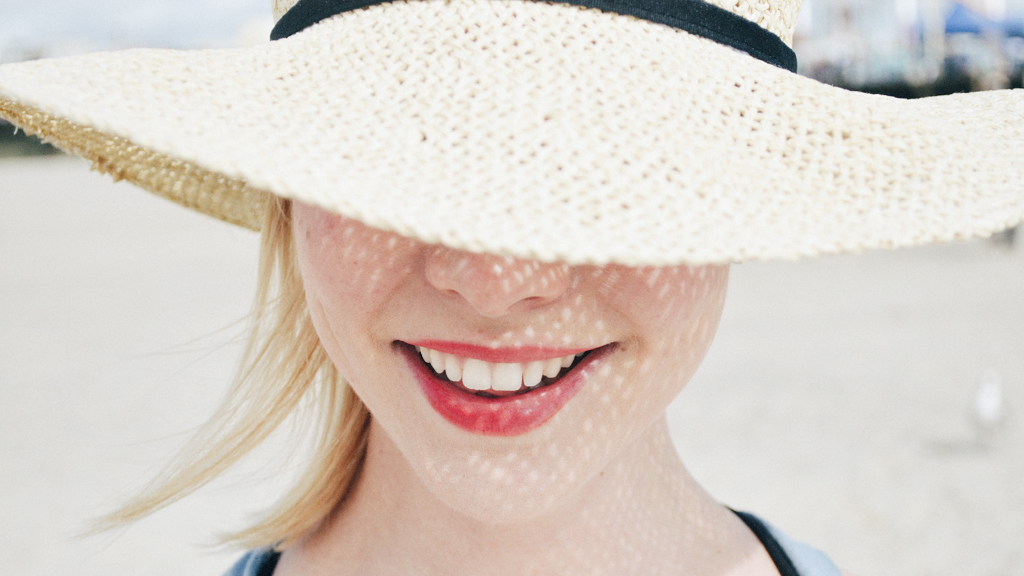
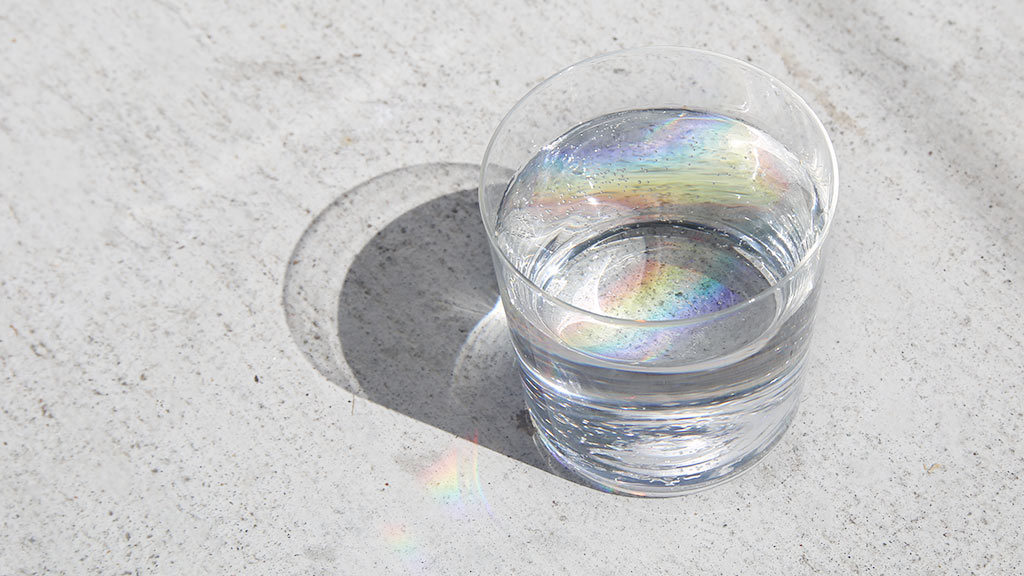
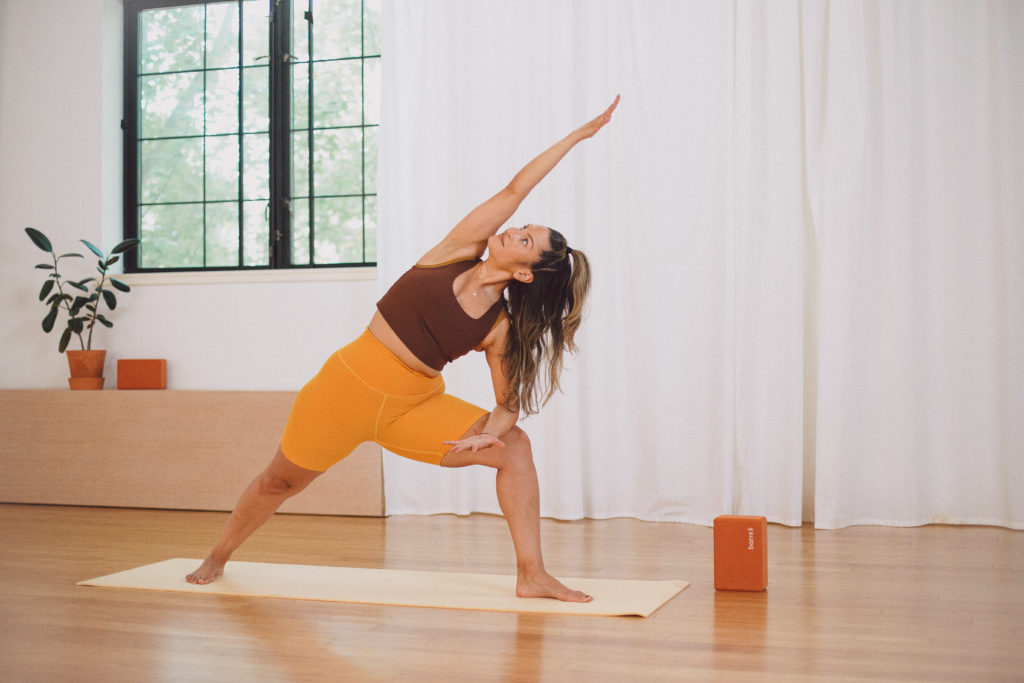
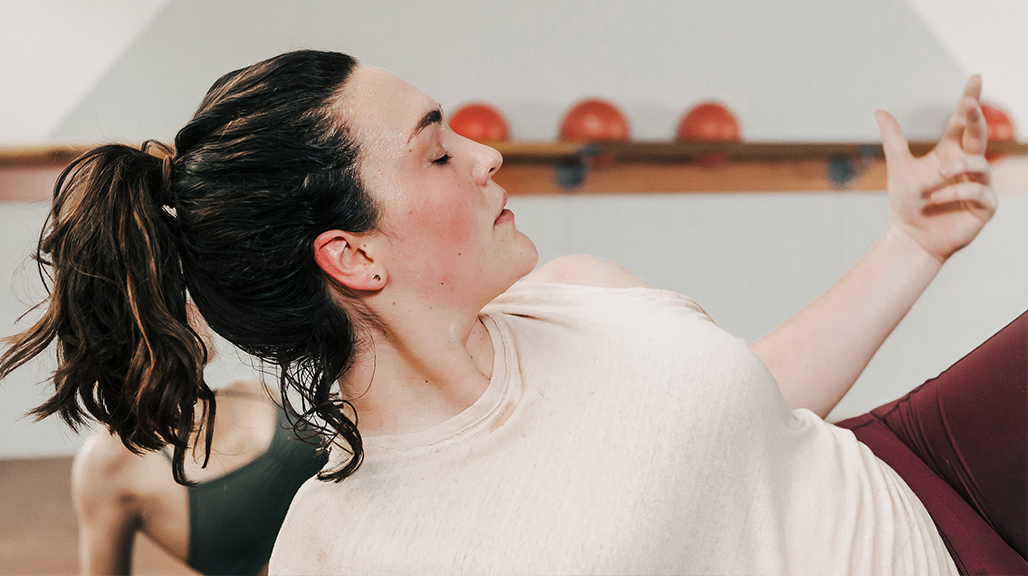
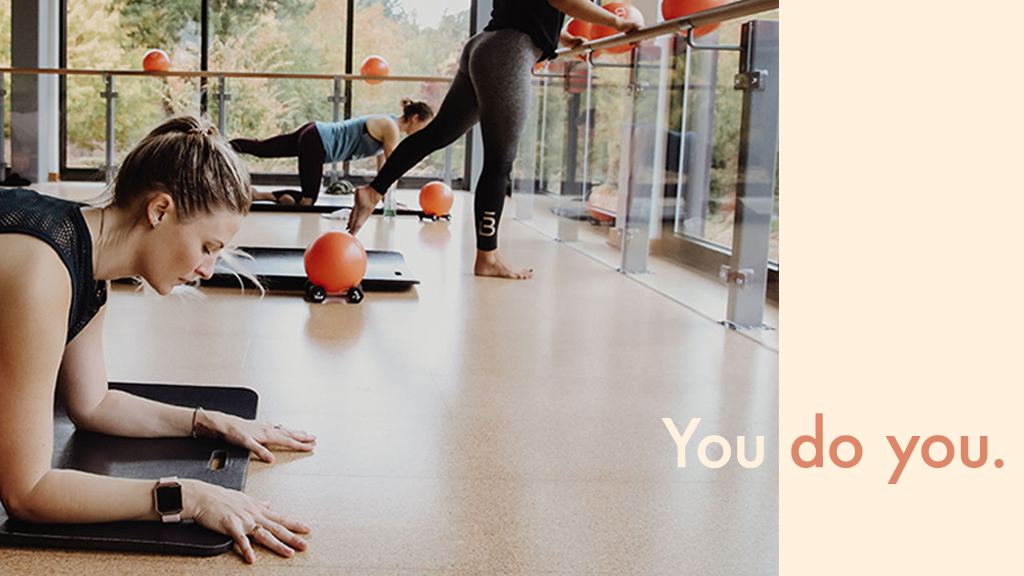



0 people have left a comment. Join the conversation!
View Comments